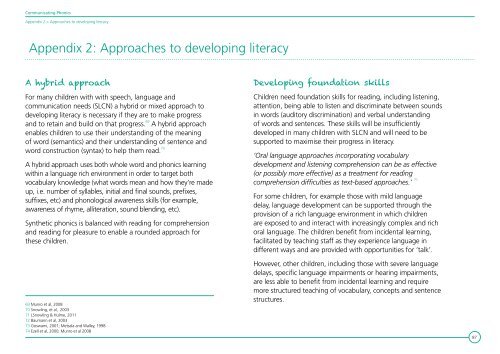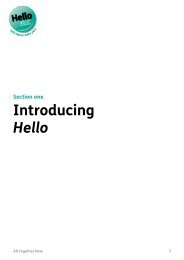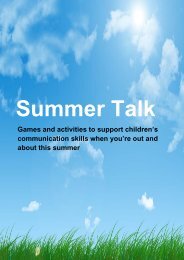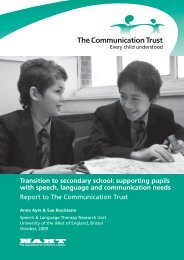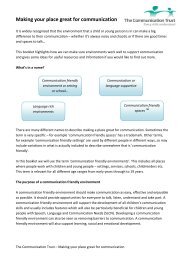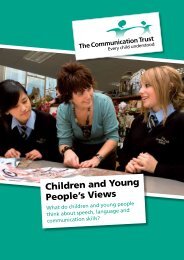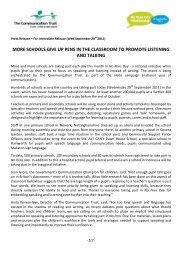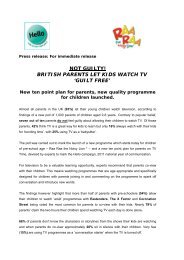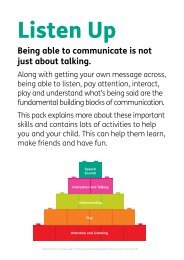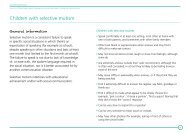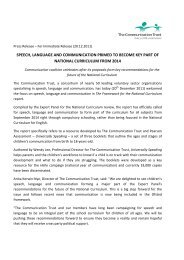Communicating Phonics - The Communication Trust
Communicating Phonics - The Communication Trust
Communicating Phonics - The Communication Trust
Create successful ePaper yourself
Turn your PDF publications into a flip-book with our unique Google optimized e-Paper software.
<strong>Communicating</strong> <strong>Phonics</strong>Appendix 2 > Approaches to developing literacyAppendix 2: Approaches to developing literacyA hybrid approachFor many children with with speech, language andcommunication needs (SLCN) a hybrid or mixed approach todeveloping literacy is necessary if they are to make progressand to retain and build on that progress. 69 A hybrid approachenables children to use their understanding of the meaningof word (semantics) and their understanding of sentence andword construction (syntax) to help them read. 70A hybrid approach uses both whole word and phonics learningwithin a language rich environment in order to target bothvocabulary knowledge (what words mean and how they’re madeup, i.e. number of syllables, initial and final sounds, prefixes,suffixes, etc) and phonological awareness skills (for example,awareness of rhyme, alliteration, sound blending, etc).Synthetic phonics is balanced with reading for comprehensionand reading for pleasure to enable a rounded approach forthese children.69 Munro et al, 200870 Snowling, et al, 200371 LSnowling & Hulme, 201172 Baumann et al, 200373 Goswami, 2001; Metsala and Walley, 199874 Ezell et al, 2000; Munro et al 2008Developing foundation skillsChildren need foundation skills for reading, including listening,attention, being able to listen and discriminate between soundsin words (auditory discrimination) and verbal understandingof words and sentences. <strong>The</strong>se skills will be insufficientlydeveloped in many children with SLCN and will need to besupported to maximise their progress in literacy.‘Oral language approaches incorporating vocabularydevelopment and listening comprehension can be as effective(or possibly more effective) as a treatment for readingcomprehension difficulties as text-based approaches.’ 71For some children, for example those with mild languagedelay, language development can be supported through theprovision of a rich language environment in which childrenare exposed to and interact with increasingly complex and richoral language. <strong>The</strong> children benefit from incidental learning,facilitated by teaching staff as they experience language indifferent ways and are provided with opportunities for ‘talk’.However, other children, including those with severe languagedelays, specific language impairments or hearing impairments,are less able to benefit from incidental learning and requiremore structured teaching of vocabulary, concepts and sentencestructures.87


